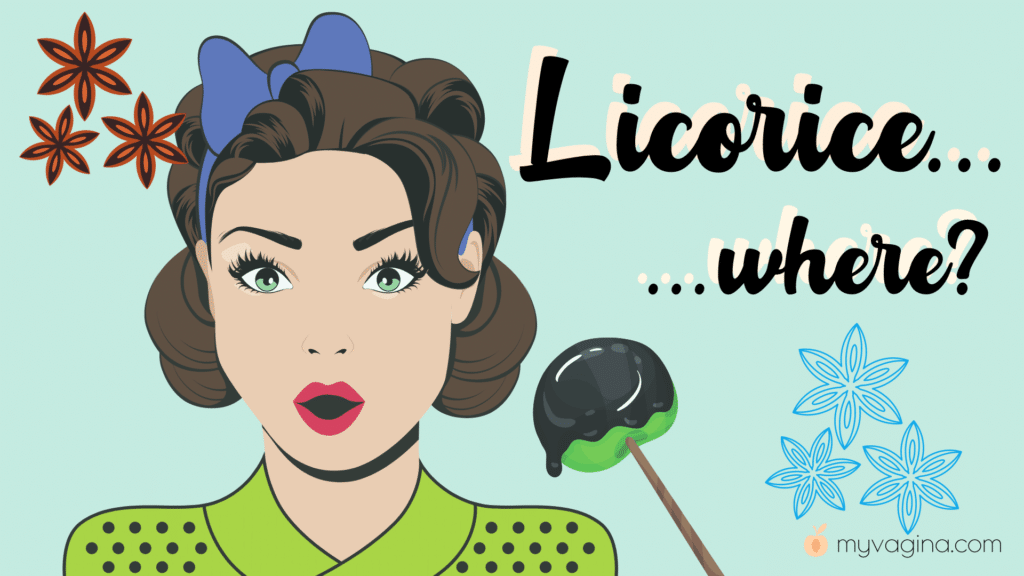Liquorice root (Glycyrrhiza glabra) has many demonstrated activities that benefit the vagina topically, including as an antibacterial, anti-inflammatory and steroidal.
The steroidal action is similar to the effect of hydrocortisone, which can help to calm and soothe cells, while the other active constituents can act on the microbial issues in vaginal dysbiosis.
When the vagina is battling with an infection or overgrowth of the wrong sorts of bacteria, inflammation can be the natural result. This inflammation may appear as itching, soreness, rawness or unusual discharge. Liquorice root extract can soothe the vaginal mucosa in several ways, reducing itching and discomfort.
Liquorice root has been demonstrated effective against both gram-positive and gram-negative microbes.
Microbes that licorice root extract (in some form) has been demonstrated to inhibit or kill include (genitourinary tract-related):
- Actinomyces viscosus
- Aspergillus niger
- Bacillus subtilis
- Enterococcus faecalis
- Escherichia coli
- Pseudomonas aeruginosa
- Staphylococcus aureus
- Streptococcus mutans
- Streptococcus sanguis
Liquorice root has also demonstrated antiviral activity and can put a damper on some viral replication, possibly reducing the impact of a viral outbreak or reducing the risk of initial infection (HIV, HPV, herpes, etc.).
References
- Sedighinia F, Safipour Afshar A, Soleimanpour S, Zarif R, Asili J, Ghazvini K. Antibacterial activity of Glycyrrhiza glabra against oral pathogens: an in vitro study. Avicenna J Phytomed. 2012;2(3):118-24.
- Manoj M. Nitalikar*, Kailas C. Munde, Balaji V. Dhore, Sajid N. Shikalgar. Studies of Antibacterial Activities of Glycyrrhiza glabra Root Extract. International Journal of PharmTech Research, CODEN (USA): IJPRIF ISSN : 0974-4304. Vol.2, No.1, pp 899-901, Jan-Mar 2010.
- Somayeh Nazari, Maryam Rameshrad, Hossein Hosseinzadeh, Toxicological Effects of Glycyrrhiza glabra (Licorice): A Review . Phytotherapy Research, 2017. Volume 31, Issue 11, November 2017, Pages 1635-1650
- Asad Abbas, Muhammad Zubair, Nasir Rasool, Komal Rizwan, Antimicrobial Potential of Glycyrrhiza glabra. Journal of Drug Design and Medicinal Chemistry. 2015; 1(2): 17-20
- Wang, Rui Yang, Bochuan Yuan, Ying Liun, Chunsheng Liunn. The antiviral and antimicrobial activities of licorice, a widely-used Chinese herb Liqiang. Acta Pharmaceutica Sinica B 2015;5(4):310–315
- Vivek K. Gupta a, Atiya Fatima a, Uzma Faridi a, Arvind S. Negi b, Karuna Shanker b, J.K. Kumar b, Neha Rahuja a, Suaib Luqman a, Brijesh S. Sisodia a, Dharmendra Saikia, M.P. Darokar, Suman P.S. Khanuja. Antimicrobial potential of Glycyrrhiza glabra roots. Journal of Ethnopharmacology 116 (2008) 377–380.





